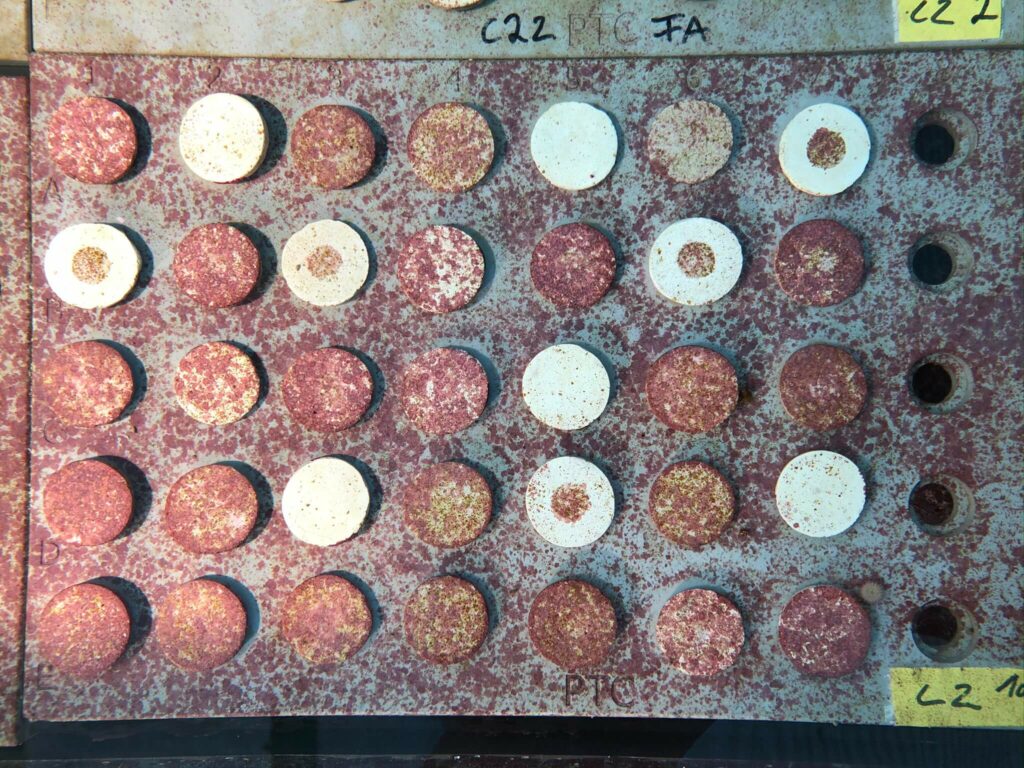
Home > Fachsektionen > Dresden > Innovationsfelder > Antimikrobielle Schutzausrüstung und -prüfung > Project: „A³ – Alternative Antifouling Applications“
The international project aimed to development alternative, sustainable antifouling strategies for use in marine aquariums and coral reef restoration. Tropical coral reefs are highly endangered, and restoration projects that aim to propagate sexually reproduced coral larvae and reintroduce them into the reefs face significant challenges with biofouling. Young corals are under intense competition from algae, which grow much faster and easily displace the coral larvae. It has been shown that the use of antifouling coatings can improve the survival rate of cultivated coral larvae.
In collaboration with the Leibniz Center for Tropical Marine Research (ZMT) and the Australian Institute of Marine Science (AIMS), the applicability of new environmentally friendly antifouling strategies for coral reef restoration was explored. Additionally, in cooperation with AquaCare, new applications for product designs and antifouling coatings for marine aquariums have been developed.

Project partners:
Publications:
ANSPRECHPARTNER:
Dr. Ulrich Soltmann
Fachsektion Dresden – “Funktionelle Schichten”
Tel.: 0351 / 2695 343
E-Mail: soltmann@gmbu.de
© Gesellschaft zur Förderung von Medizin-, Bio- und Umwelttechnologien e.V.
